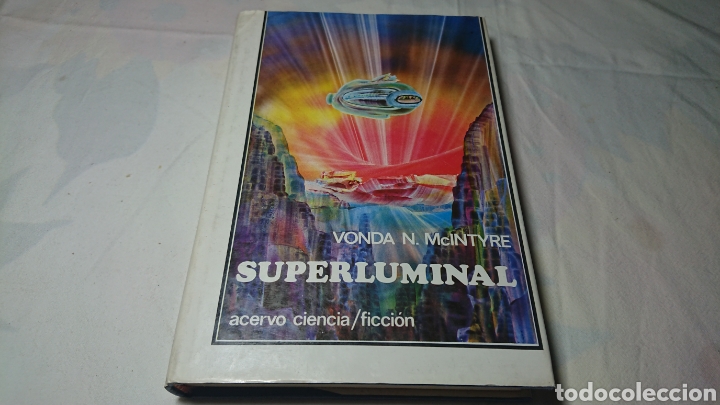
The novel that I shall be discussing, Vonda Mclntryre’s Superluminal, is a striking example of a text which, because of its contradictions, has an ambivalent relationship both to feminism and to the science fiction genre. McIntyre died yesterday at the age of 70 from cancer that had only been diagnosed 8 weeks prior.


But these kinds of cultural negotiations in popular narratives are complex and not without contradiction and the narratives which emerge are themselves often highly contradictory. Laenea, convalescing after her operation and engaged in a torrid affair with lowly crewman Radu, soon discovers why: her machine-driven metabolism. The process of cultural negotiation that this has involved has tested the limits of the dominant ideology by proposing alternative possibilities for social and sexual relations that are at odds with existing social structures and practices. To navigate in multi-dimensional hyperspace, starship pilots must undergo a drastic operation in which their hearts are replaced by mechanical pumps under conscious control subsequently they hold aloof from other crew members and ordinary mortals. By enabling and encouraging the production of stories that are inflected more towards a discussion of definitions of masculinity and femininity and of social and sexual relations generally, feminist science fiction has redrawn the boundaries of the genre. If the genre now appears to have a less embattled relationship to feminism this is partly due to the way in which feminist science fiction, in challenging assumptions about gender, has also challenged the nature of the genre. The impact on science fiction of the cultural politics of feminism has resulted in recent years in the production of texts in which gender and sexual relations have been foregrounded as major issues in the narratives.


 0 kommentar(er)
0 kommentar(er)
